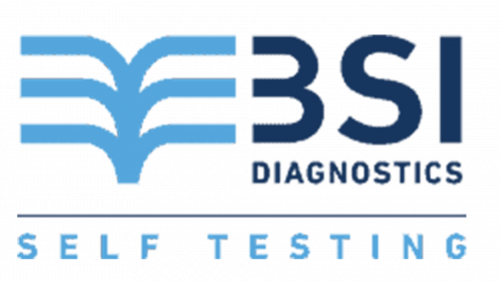Heart disease is a leading cause of death, but it's not inevitable. While you can't change some risk factors such as family history, sex, or age there are plenty of ways you can reduce your risk of heart disease. When you choose healthy behaviors, you can lower your heart disease risk while also preventing other serious chronic conditions like type 2 diabetes and some kinds of cancer.
You might not give it much thought throughout the day, but your heart is working around the clock for you. Your heart is the most important muscle in your body because it pumps blood and oxygen to all of your organs. When your heart doesn’t get the care it needs, serious problems can develop in the lining of the arteries, which then lead to plaque formation. Plaque is what leads to heart attacks and blockage of blood flow in the arteries. Understand the conditions that affect your heart and the habits that can help prevent or manage them. Taking action will help you keep your ticker in top shape. The following are some metabolic disorders that can lead to heart disease:
Cholesterol
What is cholesterol?
You may think all cholesterol is bad, but your body needs some to work right. Cholesterol is a waxy substance that your body makes and you also get from food. It allows your body to make vitamin D and certain hormones, including estrogen in women and testosterone in men and helps with digestion.
Why should I care about cholesterol?
There are two types of cholesterol you may have heard about: High-density lipoprotein or HDL, often called good cholesterol, and low-density lipoprotein or LDL, often called bad cholesterol. Bad cholesterol can contribute to artery-clogging plaque. Good cholesterol, on the other hand, helps remove plaque. In the end, it helps protect you from getting heart disease. Having too much of the bad, or not enough of the good, can lead to heart disease.
How do I know if I have high cholesterol?
There are usually no symptoms of high cholesterol. That’s why it’s best to get your cholesterol levels checked through a blood test or home kits. You may need to go without eating, drinking, or taking medication, anywhere from nine to 12 hours before your test. Talk to your doctor about how to best prep for a home test. That blood test will give you several numbers, including your total cholesterol, your levels of good and bad cholesterol, and triglycerides, which is a type of fat.
Cholesterol Goals
| Total Cholesterol |
|
| LDL (Low-Density Lipoprotein) |
|
| HDL (High-Density Lipoprotein) |
|
| Triglycerides |
|
High Blood Pressure
What is high blood pressure?
When you have high blood pressure, also called hypertension, the force of blood against the walls of your arteries is high. Without treatment, high blood pressure can damage your arteries, heart, kidneys, and other organs. It can lead to heart attacks, strokes, and kidney failure. It can also cause vision and memory loss, erectile dysfunction, fluid in the lungs, chest pain, circulatory problems, and several other conditions.
How do I know if I have high blood pressure?
A blood pressure test is the only way to know if your blood pressure is too high. During the test, a cuff is placed around your upper arm to measure the pressure of blood flowing through the arteries. While it’s almost impossible to tell if you have high blood pressure without a test, there is something called hypertensive crisis where your blood pressure is so high that you need emergency care. In this case, you would have symptoms. If you have high blood pressure along with severe headaches or back pain, chest discomfort, nausea or vomiting, feeling nervous or anxious.
What can I do in my daily life to lower my risk of heart disease?
- Learn Your Health History: Know your risks and talk to your family and doctor about your health history.
-
Eat a Healthy Diet: Make healthy food choices like more fruits, vegetables, whole grains, lean meats, and low-fat dairy products. Eat less salt, saturated fat, and added sugar.
-
Move More, Sit Less: Get at least 150 minutes of moderate-intensity aerobic activity every week, plus muscle-strengthening activities at least 2 days a week.
-
Don't smoke or use tobacco: Chemicals in tobacco can damage the heart and blood vessels. Cigarette smoke reduces the oxygen in the blood, which increases blood pressure and heart rate because the heart has to work harder to supply enough oxygen to the body and brain.
-
Maintain a healthy weight: Being overweight — especially around the middle of the body — increases the risk of heart disease. Excess weight can lead to conditions that increase the chances of developing heart disease — including high blood pressure, high cholesterol, and type 2 diabetes. The body mass index (BMI) uses height and weight to determine whether a person is overweight or obese. A BMI of 25 or higher is considered overweight and is generally associated with higher cholesterol, higher blood pressure, and an increased risk of heart disease and stroke.
What tools can help me keep an eye on my heart health at home?
If you’re looking to keep close tabs on your blood pressure, weight, or amount of exercise, there are some tools that can help motivate you and track your progress. Here are a few you might consider:
- Blood pressure monitor: This can help you track your blood pressure on your own. Look for an automatic, cuff-style, upper-arm monitor. Just make sure the cuff fits your arm before you buy it.
Take your blood pressure twice in the morning and twice in the evening for at least 3 days to get an average reading. - Heart rate monitor: These devices tell you how hard your heart is working when you do physical activity.
- Blood Glucose, Cholesterol, and Triglycerides Monitoring System:
For monitoring blood sugar, cholesterol and triglycerides PT Isotekindo Intertama has a special product, namely MULTICAREIN Meter 3 in 1 Blood Glucose, Cholesterol, and Triglycerides. MULTICAREIN Meter 3 in 1 Blood Glucose, Cholesterol, and Triglycerides offer a quick and easy way to test for glucose, cholesterol, and triglycerides in the blood using test strips.
There are features and benefits of the MULTICAREIN Meter 3 in 1 Blood Glucose, Cholesterol, and Triglycerides:
- Short time testing MULTICAREIN Meter 3 in 1 Blood Glucose, Cholesterol, and Triglycerides it only takes 5 seconds for the glucose test and 20 seconds for the Cholesterol and Triglycerides test, so the testing time is efficient
- 3 in 1 parameter: Inspection costs are cheaper & practical directly for 3 tests using MULTICAREIN Meter 3 in 1 Blood Glucose, Cholesterol, and Triglycerides
- Up to 500 data memory, MULTICAREIN Meter 3 in 1 Blood Glucose, Cholesterol, and Triglycerides have a large memory capacity making it easy to validate the previous test results
- MULTICAREIN Meter 3 in 1 Blood Glucose, Cholesterol, and Triglycerides Equipped with a test strip ejector, Safe to use, there is no need to pull the test strip
- Customizable, The device can be used by men & women are equipped with a correction factor so that the measurement results are accurate using MULTICAREIN Meter 3 in 1 Blood Glucose, Cholesterol, and Triglycerides
Altered blood parameters such as high blood glucose, high serum cholesterol, and high serum triglycerides may define a clinical condition known as METABOLIC SYNDROME which can increase CARDIOVASCULAR RISK.
References:
- CDC (2022). 7 Strategies to Live a Heart-Healthy Lifestyle
- Insert Pack MULTICAREIN Meter 3 in 1 Blood Glucose, Cholesterol, and Triglycerides
- WebMD (2022). Heart Health Tips


